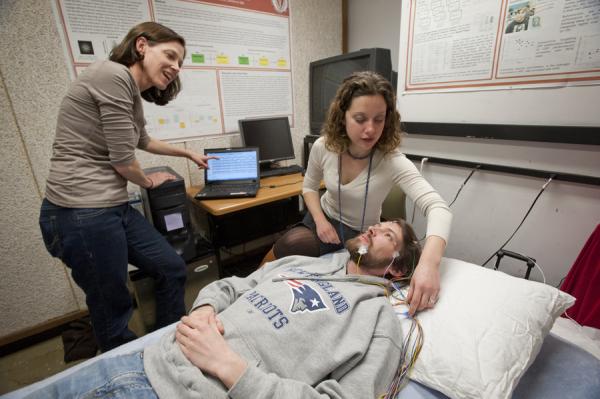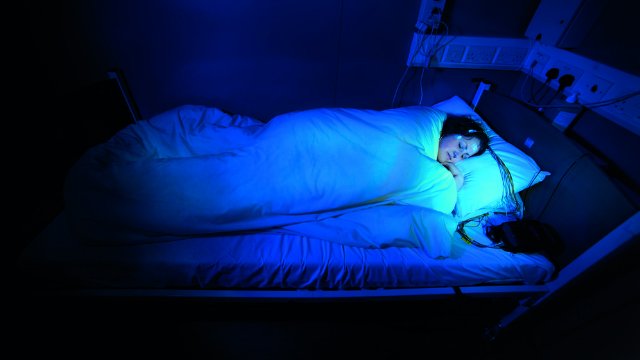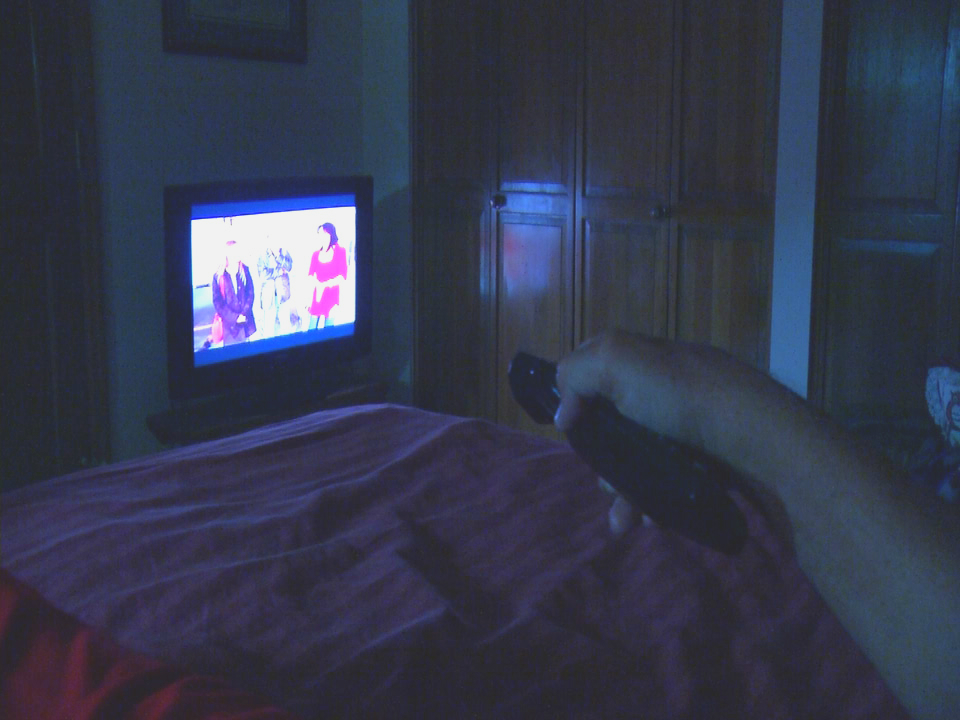Many of us have a habit of turning on the night light at night, or turning the light in the bedroom to dark mode, turning on the light on the plaster ceiling while sleeping.
However, a new study published in the Proceedings of the American Academy of Sciences says this is an unhealthy habit. Specifically, light from a night light, even if it is weak, can still shine through your eyelids.
These rays are enough to make so many subtle changes in your body. It causes your heart rate to increase, reducing insulin action which in turn raises blood sugar.
Study author Dr. Phyllis Zee, director of the Center for Sleep and Circadian Medicine at Northwestern University Feinberg School of Medicine, said: “At night, our heart rate usually drops. It slows down while the brain repairs the damage caused by the body’s daytime activity.
Elevated heart rate at night has been shown by many studies to be a risk factor for heart disease and early death in the future. Meanwhile, high blood sugar is a sign of insulin resistance, a risk factor for type 2 diabetes.
What happens if you leave the light on while you sleep?
Many previous studies have found a link between artificial light at night and adverse health effects if you are exposed to them including: disruption of metabolic function, secretion of the hormone insulin, development of diabetes, cardiovascular risk, weight gain and obesity…
“Specifically, why does turning on a night light affect metabolic functions? Could this habit explain the current trend of increasing prevalence of diabetes and obesity in the population?“, said Dr. Zee.
To answer those questions, she and her team then conducted a number of experiments. They selected 20 healthy people in their 20s and 30s who were willing to spend two nights sleeping in the lab.
The first night, the volunteers slept in a completely dark room. Dr. Zee describes: “You won’t be able to see anything in it if you open your eyes.”

The scientists prepared each volunteer a series of wearable devices to monitor objective indicators of sleep such as heart rate, breathing rate, brain waves, etc.
In particular, the volunteers were fitted with an intravenous catheter, so that the scientists could draw their blood while sleeping and do tests. The catheter was cleverly installed so as not to cause pain or discomfort during sleep. Basically, they will have their blood drawn without even knowing it.
“We recorded the volunteers’ brain waves, which could tell what stage of sleep they were in. We also recorded their breathing, heart rate, electrocardiogram, took blood from them to measure melatonin levels while they were sleeping.“, said Dr. Zee.
Melatonin is a hormone that regulates the body’s circadian rhythms. Usually when exposed to darkness, the brain will release a lot of melatonin to make you feel sleepy and vice versa.
During the second night at the lab, 20 volunteers were divided into 2 groups. The first group will continue to sleep in a completely dark room. While, the second group will sleep with a weak light.
Dr. Zee describes that light as roughly equivalent to “a day that is very, very dark, cloudy or like a street light shining through a window“. Although all the volunteers slept with their eyes closed, it is estimated that 5-10% of this light still penetrated their eyelids.
So what are the consequences of that?

During the follow-up period, Dr. Zee and colleagues found that volunteers in the group who slept with the lamp had higher heart rates and increased insulin resistance.
The sympathetic nervous system (responsible for the alert response) and the parasympathetic nervous system (which helps you rest and relax) are out of balance. This imbalance can put you at risk for high blood pressure.
Thus, even a small amount of light at night that penetrates the eyelids can affect many sleep health parameters. Dr. Zee said only the volunteers’ melatonin levels remained constant.
So what advice do we have after this research?
Dr. Zee said it’s best at night, you should turn off all devices that can emit light. Close the curtains to prevent outside light from entering the house.
If your room has a night light, think of it as a light for you to turn on at night, to prepare for sleep, not to turn on while sleeping.
Ideally, use night lights or night lights on low floors, do not place them high or at eye level. Also, set your night lights to their weakest setting.
“Make sure you start dimming the lights at least an hour or two before bed, this will prepare you for a good night’s sleep.”said Dr. Zee.

In addition, she also notes about the variety of artificial light in your bedroom. Dr Zee said the bedroom should be free of devices that emit blue light, such as TVs, smartphones, tablets and laptops.
“Blue light is the most stimulating type of light“, she said.If you must turn on the lights for safety reasons, change the color. You should choose a light with a sepia or dark brown tone.” If you still want to keep the lights on while you sleep, consider buying an eyepatch.
Refer to Cnn
